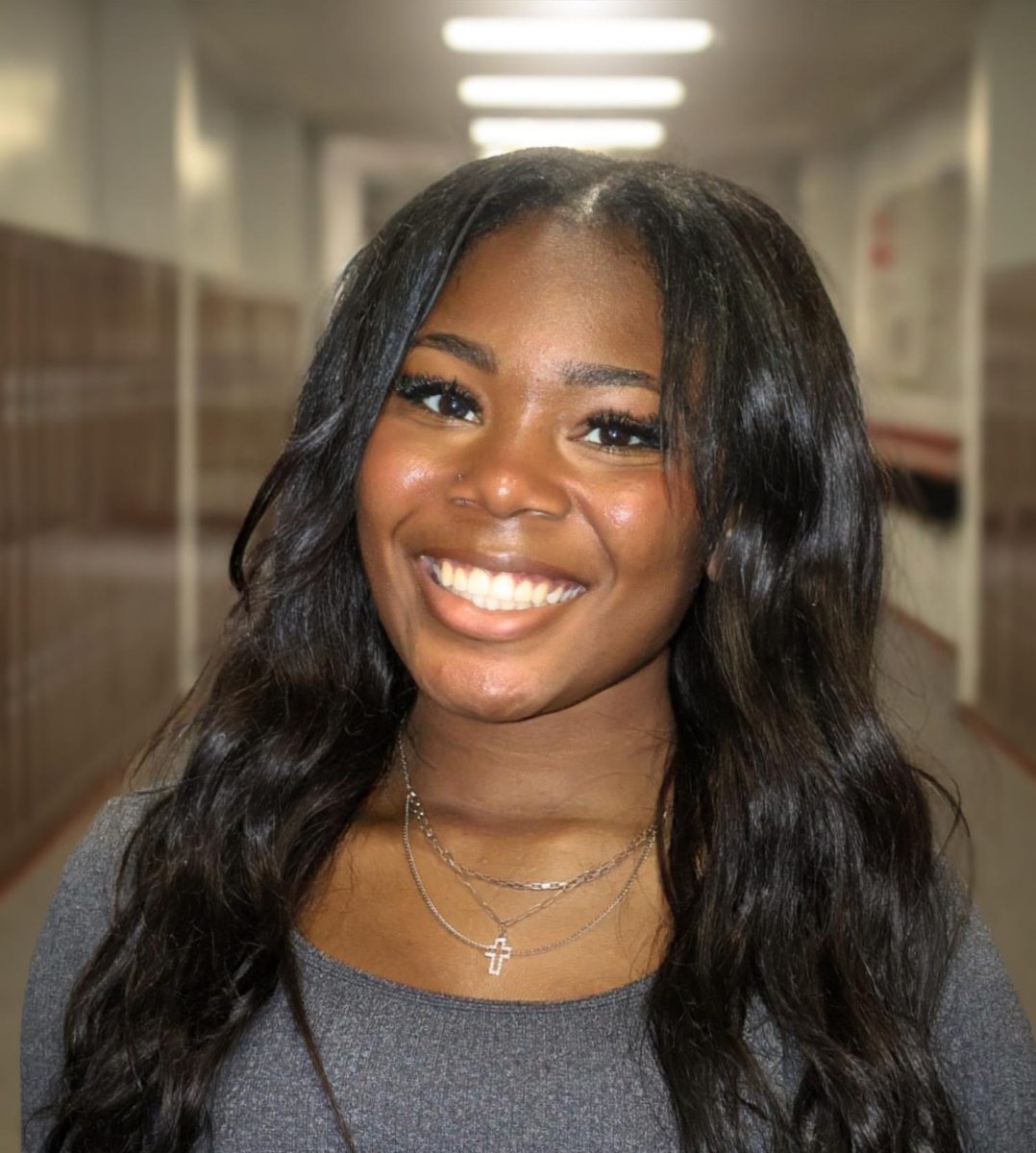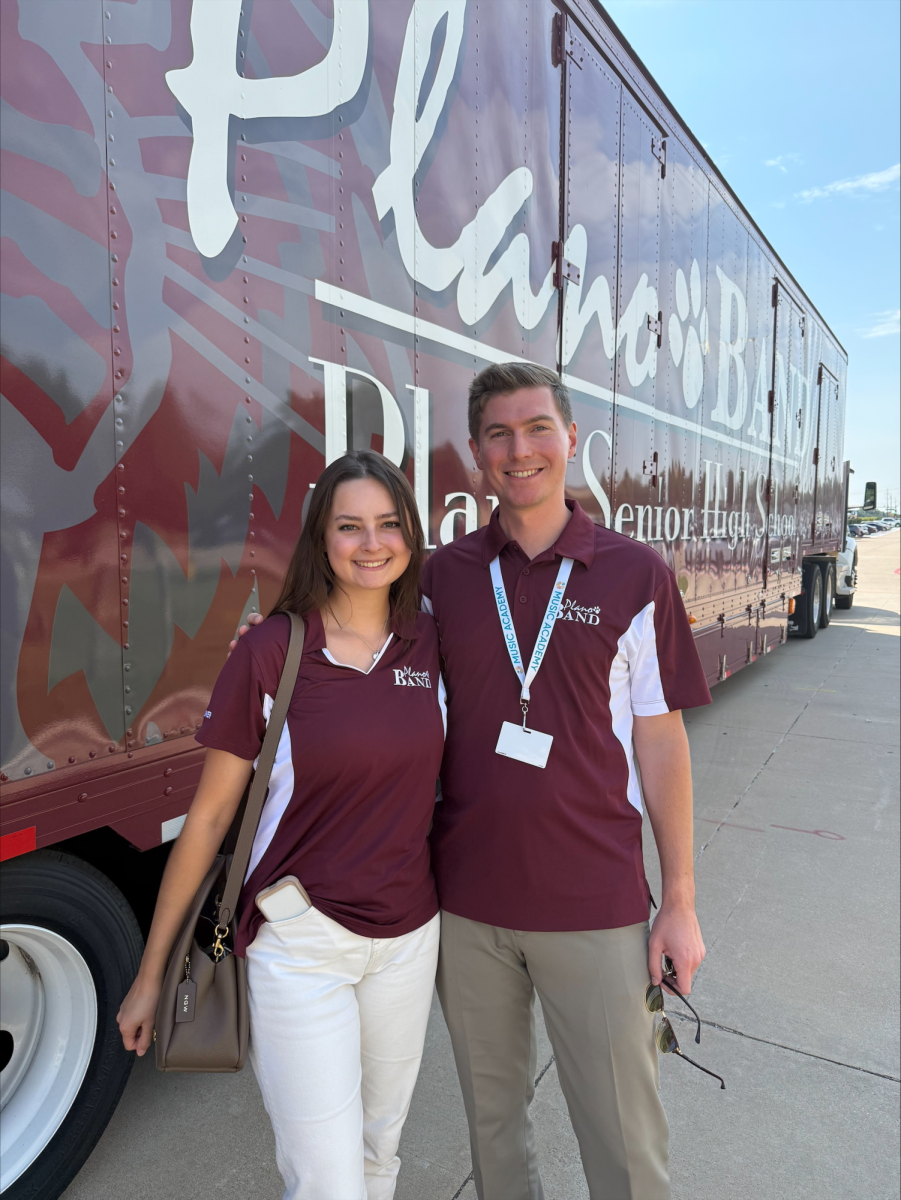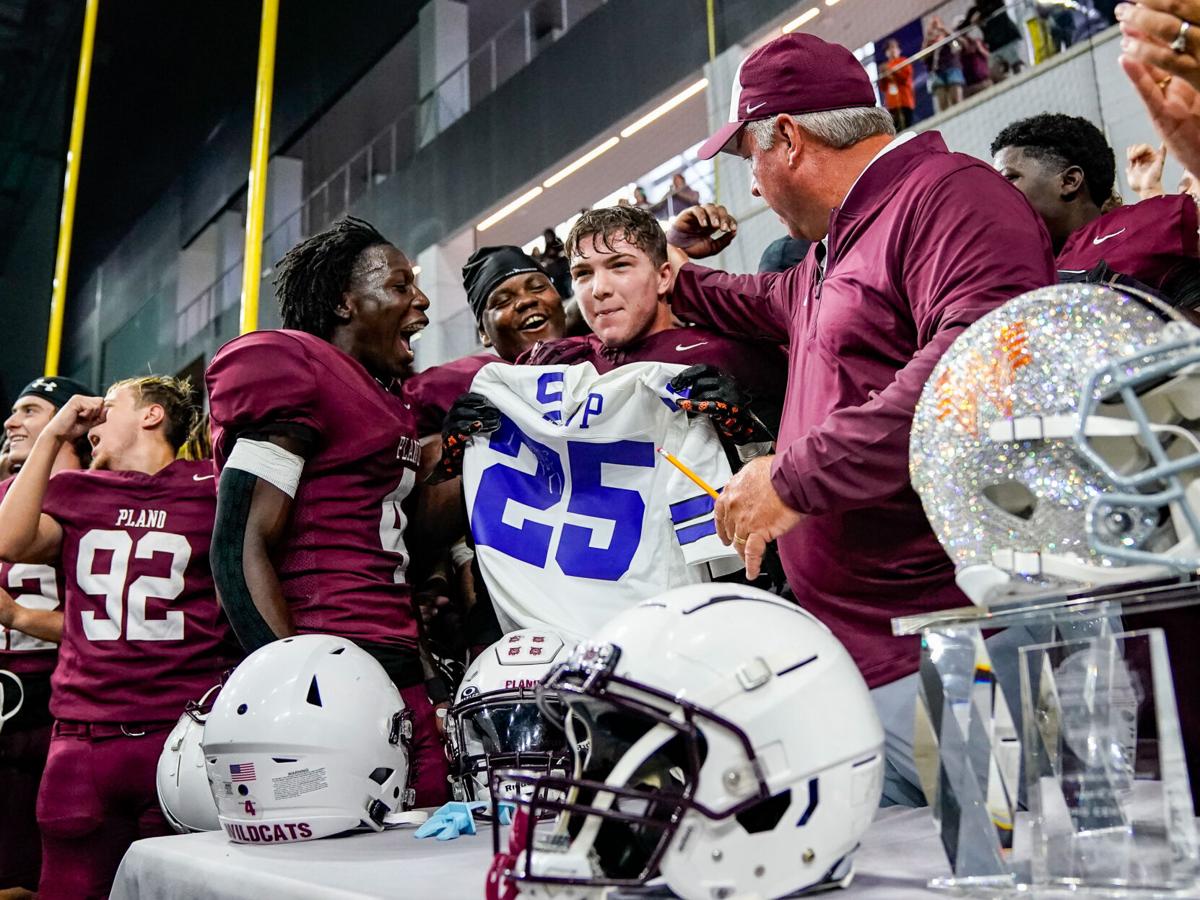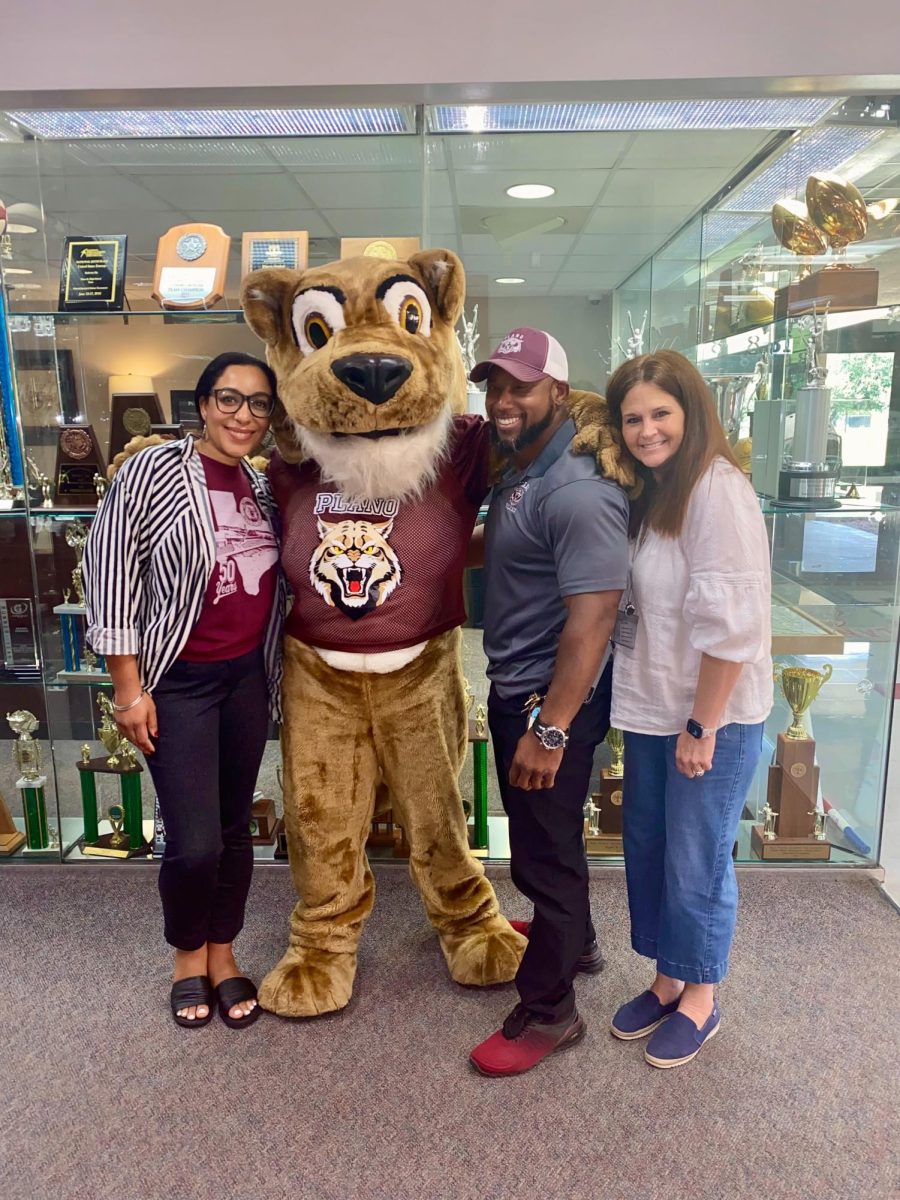It was in first grade when her parents first pointed them out to her. She’d never seen people signing before; the idea was completely new to her. Born deaf, senior Vivian Chen was raised orally and initially not taught sign language.
“I was confused,” Chen said. “They explained to me that it was how other deaf people talked to each other. I was in awe and I knew I wanted to learn.”
Students who are deaf find out at a very young age that they do not have the ability to hear. Ordinarily, this is discovered when parents realize their children repeatedly do not respond to them. Next, these children are taken to the audiologist’s office with their parents to learn about options such as cochlear implants and hearing aids.
Hearing aids did not work for Chen. Trips to the doctor’s office for professional opinions as well as research done by her parents led to the decision that she would undergo a surgery to get a cochlear implant.
The surgery is considered risky because it is close to the brain, and can cause partial face paralysis as a result. Furthermore, an infection can lead to having to remove the device.
After Chen got the cochlear implant surgery, she could not hear immediately – she had to wait for recovery. The effectiveness of the implant was tested by an audiologist, who hooked her up to a machine that stimulated hearing. She was then placed in speech therapy, where she learned the basic meaning of words.
In fifth grade Chen started to pick up on signs and in middle school she began to immerse herself in deaf culture.
“I met a deaf family. I was so shocked when I first rang their doorbell because the lights inside started flickering,” Chen said. “That was their way of telling someone was at the door. They had the same function for their phones. I was shocked when I saw they had video phones with interpretors on the other side waiting for us to call people. They had alarm clocks that shook the bed to wake them up. It was amazing.”
Once she was enrolled in grade school she became a part of the Deaf-Ed department.
“One thing you have to understand about deaf people is they learn just the same as hearing people do,” Chen said. “They just need a little more guidance or attention. That is why we have the Deaf Education department. Deaf Education teaches children how to communicate effectively with their classmates and people around them on a daily basis. Sometimes parents who are willing to learn will be able to from the Deaf-Ed teachers on how to raise their kids. The teachers don’t only teach the kids, but the adults as well, that deafness is not that big of an obstacle to overcome.”
Deaf-Ed helps students continue through their classes as smoothly and effectively as possible. In some cases teachers are required to provide copies of class notes because it is difficult for Deaf-Ed students to write and watch the interpretor while trying to comprehend information.
“We only have two eyes. Hearing students have it easier; they can listen with their ears and write down notes from the PowerPoint with their eyes,” Chen said. “If I were to look away from the interpretor for five seconds and look back I would be lost and it would take me time to catch up.”
Deaf-Ed teachers cater to each specific individual, as the hearing loss is different for each student.
“Deaf Education teachers are there because typical teachers may not understand how to interact with deaf students or understand their struggles,” Chen said. “Deaf-Ed teachers have learned the deaf culture and the ways of deaf students. They work very hard to try to get us up to level with the other hearing students.”
Many Deaf-Ed teachers can work one-on-one with students because there are not as many students in their classes. This leads to personal connections between teachers and students.
“The Deaf-Ed teachers have been there for me through the tears, struggles and accomplishments,” Chen said. “They are some of my favorite people in the world to confide in. Most of the time, they are involved in students’ lives and provide whatever help they can provide.”
According to Chen, a common struggle for deaf students is communicating with their parents.
“I come from a family with lots of support and care,” Chen said. “However, sometimes I don’t think my parents really understand my deafness. I think in a way, they hoped that the cochlear implant fixed my hearing. It didn’t. It helped me, but never fully cured my deafness. Once I had an infection on the site where my cochlear implant was in middle school, which caused me to not be able to wear it. My parents were freaking out, but eventually they found other ways to talk to me and realized they couldn’t rely solely on my implant or lip reading to communicate.”
While there are physical obstacles for Deaf-Ed students as they grow up, realizing they’re not like everyone else can affect them emotionally.
“I think I have always grown up knowing that I was different than people,” Chen said. “I remember my big, bulky cochlear implant and never seeing it on other people. My parents would spot a person with hearing aids or cochlear implants and point them out to me. They wouldn’t do that if I was hearing. They wouldn’t point at another person with no hearing aids and say, ‘Oh they’re just like you.”
Interactions with hearing people can also be a struggle for deaf people.
“In the past people were nervous to talk to me,” Chen said. “Often I would not pick up on what they were saying the first time and I would have to ask them to repeat what they said and they would usually say, ‘Never mind’. It really does hurt that they can’t take four seconds to repeat what they said and that they won’t take that small amount of time to try to talk to me.”
Chen has improved in areas of communication over the last 18 years. She hardly has a deaf accent at all and is basically fluent in sign language. However, she still struggles with interacting with people at times.
“Anytime a person realizes I can talk they usually assume I can understand them like a hearing person can,” Chen said. “Sometimes English sounds like a foreign language to me even though I have grown up hearing and speaking it. At times, in public, when shopping or ordering food I usually prefer to write down my requests or point to the items on the menu. I feel more comfortable doing that since most people are willing to work with me in that matter.”
Chen said PISD has some of the best deaf programs around so attending Plano is a privilege for Chen.
“The students here are very friendly and supportive,” Chen said. “If I went to another school I’d probably feel like an outsider. I remember meeting some people for the first time and telling them I was deaf. Their first reaction was to apologize as if I had cancer or some life-threatening disease. I am okay; I’m probably not going to die from this disability unless I get run over by a car honking at me.”
Despite the struggles that Chen and other Deaf-Ed students face on a regular basis, Chen believes there is no reason to not be positive about life.
“I’m deaf, so what? It doesn’t make me too different from the rest of the people except for the fact that I may have to work a little harder,” Chen said. “Yes, I don’t think that’s fair sometimes, but I’ll live. In a way I think my being deaf made me a much stronger person. In high school, I’ve gone on field trips where I met so many other students from around Texas and the nation and I realized it is honestly okay to be deaf.”
Being deaf will not get in Chen’s way. In fact, after she attends the University of Houston it may help her achieve greater success in her chosen profession in the medical field.
“I have met deaf nurses and deaf doctors,” Chen said. “My deafness will open more doors for other deaf children. If I am able to prove that I am just as successful, other hearing people will see and have a different opinion on deaf people.”
*Interview was conducted online






